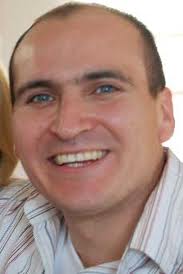Congratulations Dr. Sepulveda
Congratulations Dr. Sepulveda
 Congratulations to postdoc Julio Sepulveda, winner of a 2012 School of Science Infinite Kilometer Award. This year the Infinite K recognizes "the outstanding contributions of our postdoctoral researchers and newly appointed research scientists for contributions during their postdoctoral period for accomplishments beyond their typical assigned responsibilities and for exceptional contributions to the community".
Congratulations to postdoc Julio Sepulveda, winner of a 2012 School of Science Infinite Kilometer Award. This year the Infinite K recognizes "the outstanding contributions of our postdoctoral researchers and newly appointed research scientists for contributions during their postdoctoral period for accomplishments beyond their typical assigned responsibilities and for exceptional contributions to the community". Julio’s research focuses on studying how biotic and abiotic processes control carbon and nutrient cycling in modern and ancient environments. By deciphering the biogeochemical and isotopic information encoded in organic molecules from environmental and geological samples, he aims to better understand how marine microorganisms and ecosystems respond to environmental disruptions such as oxygen depletion and mass extinction events. Recent and current research has focused on the biogeochemistry and microbial ecology of modern oxygen minimum zones and their ancient counterparts during the Cretaceous Period (oceanic anoxic events), the ecological and biogeochemical reorganization following the Cretaceous-Paleogene mass extinction event, and multi-proxy climatic-oceanographic reconstructions over the last two millennia.
Julio received his Ph.D. in Marine Geosciences from the University of Bremen, Germany, and his B.Sc. in Marine Biology and Oceanography, and M.Sc. in Oceanography from the University of Concepción, Chile. He is a member of Roger Summons' Geobiology and Astrobiology Lab. Congratulations Julio!
Recent Publication:
Sepulveda, J., S. Pantoja, and K. A. Hughen (2011), Sources and distribution of organic matter in northern Patagonia fjords, Chile (similar to 44-47 degrees S): A multi-tracer approach for carbon cycling assessment, Continental Shelf Research, 31(3-4), 315-329, doi: 10.1016/j.csr.2010.05.013